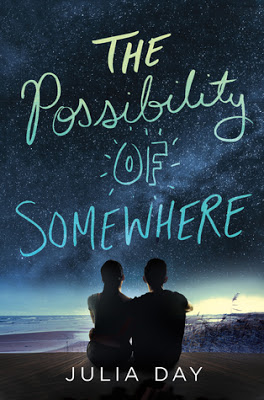Welcome to another session of Turning Pages!
PRIDE AND PREJUDICE is a big deal for a lot of young readers, but many, many, many others consider death a happier alternative than committing to the famous 19th century novel. Enter the modern day makeover. PROM & PREJUDICE, by Elizabeth Eulberg. PRIDE AND POPULARITY, by Jenni James. EPIC FAIL, by by Claire LaZebnik. Every few years it seems another remake pops up. This one has new elements in it – the prejudice isn’t just about class, it also includes race. We’re given to understand that of course, racism is wrong and bad, but there’s no exploration of it in reality. Ultimately, readers will edge toward looking at preconceived notions about “rednecks,” and “trailer trash,” but the novel stops short of taking an actual in-depth look, or making a statement, choosing instead to focus on romance.
Synopsis: Eden is someone who can never let it die that her mother behaved badly with almost every man in the county, and then left she and her brother when they were tiny. Never mind that there were other people – namely, men – involved in those relationships – Eden feels tarred with the same brush, her shapely body a shame to be covered in giant flannel shirts and huge jeans. Never mind that she has a stepmother now, and has for years, who has been a faithful part of her family. Nope – Eden lives in shame, and her only hope of removing the stain of her embarrassing beginnings is to remove herself from their small town. The path out – high grades, eyes-on-the-prize, full scholarship, somewhere. A few kids stand in the way – namely Ash Gupta, a gorgeous hunk of guy who is one of the wealthiest in their community. We’re told from a bystander’s comments that teachers are trying to get them to work together and lower the tone of competitive hostility between them. Eden doesn’t really see a point to that — there are only so many scholarships, and while Ash’s parents could send him anywhere, Eden’s father doesn’t even want her to go – anywhere. The scholarship is all she’s got. Being forced to work with Ash allows Eden to see a side to him that she didn’t know existed, while Ash is surprised at this more dimensional Eden. While she’s softening toward the world in general, Ash wants to be first in the door to find out more. Unfortunately, Ash’s father is the owner of one of the major industries in their town. Eden’s dad once worked for him – before he was laid off. On the other side of the fence, everyone knows about Eden’s mother being the town tart… A scholarship, a friendship and a relationship are on the line – and if Eden leaves everything familiar to truly reach for what she wants – and misses – what’s left? The possibilities are endless.
Observations: While I enjoyed being allowed to feel that this retelling of PRIDE AND PREJUDICE was a novel with a story arc I didn’t know, none of the characters stayed into fully-dimensional people all the time. At times, I was disappointed; I wanted to like each of the characters, but they occasionally seemed like a collection of broadly sketched “types.” There’s the sassy-mouthed and borderline hostile redneck girl – who is titled as “Christian” despite ever darkening the door of the church, praying, or engaging any religious ritual outside attending a funeral to support a friend. Christian is erroneously conflated with White. There was so much we could have dug into with Eden – her body shame is just one meaty topic among others, but the novel never went there.
Then there’s the Guptas. As a family who owns a business in a Southern state, there’s a lot that isn’t said about them – about the prejudices they face, about the rigidity of the class structure within their community. We are told that they’re Hindu, but never see that part of their lives, or much of the Guptas lives at all, except that Ash and his friends seem to walk in lockstep. Was Ash ostracized or heckled because of his race? Have the Guptas faced anything? Too much is left unsaid so when we’re told that the Guptas reject Eden as girlfriend material, it doesn’t resonate. Eden, however, is primed for their distaste, and the narrative rolls on.
As the character with the tertiary storyline, Munday is the socially errant home-schooled kid (a trope which I wish would just die). Of course, Mundy is also smart and good-looking once you get past the bizarre behavior. It’s almost like the girl who just removes her glasses and is suddenly a sex-bomb. This is another trope which I wish would die. Mundy is such an honest, great-hearted girl that it’s unfortunate to see her through these filters.
 Ash doesn’t actually change throughout the narrative. He’s grade-conscious, class-conscious, and too conscious of how his friends saw things, far too easily embarrassed by this girl he purports to ardently admire, and overly wary of the baggage of her being of a lower socioeconomic rung than he. Despite all of this, and the obstacles both assume will be in their way, things get hot and heavy pretty fast, all the way to the intensity of speaking “I love yous” out loud. And then, at the first sign of dismay – boom, they’re over. Though this novel purports to be about star-crossed, wrong-sides-of-the-tracks friends-to-lovers, nothing is really challenged – not class consciousness, not ethnic insularity, and not the neutered racism depicted. Eden’s father and Eden’s nemesis say nasty things, but Southern racism in small, rural towns is known to be at times fairly overt and hostile. This doesn’t show up in the novel, nor is there a reason given for this relative truce. Nothing is thought through, challenged or changed in their lives or in their community by Eden and Ash’s relationship. The answer to a reticence from a few people to a mixed race relationship? Mainly, keep kissing. Love will conquer all.
Ash doesn’t actually change throughout the narrative. He’s grade-conscious, class-conscious, and too conscious of how his friends saw things, far too easily embarrassed by this girl he purports to ardently admire, and overly wary of the baggage of her being of a lower socioeconomic rung than he. Despite all of this, and the obstacles both assume will be in their way, things get hot and heavy pretty fast, all the way to the intensity of speaking “I love yous” out loud. And then, at the first sign of dismay – boom, they’re over. Though this novel purports to be about star-crossed, wrong-sides-of-the-tracks friends-to-lovers, nothing is really challenged – not class consciousness, not ethnic insularity, and not the neutered racism depicted. Eden’s father and Eden’s nemesis say nasty things, but Southern racism in small, rural towns is known to be at times fairly overt and hostile. This doesn’t show up in the novel, nor is there a reason given for this relative truce. Nothing is thought through, challenged or changed in their lives or in their community by Eden and Ash’s relationship. The answer to a reticence from a few people to a mixed race relationship? Mainly, keep kissing. Love will conquer all.
Conclusion: Fans of the original may feel they’ve found a new intensely romantic couple to cheer for, and those looking for a sweet friendship between a stepmother and stepdaughter can find that here. Readers looking for an actual straightforward exploration of a relationship tripped up by prejudice within communities in the South and how socioeconomic inequities would affect a biracial couple will need to look elsewhere.
I received my copy of this book courtesy of the publisher. After September 6, 2016, you can find THE POSSIBILITY OF SOMEWHERE by Julia Day at an online e-tailer, or at a real life, independent bookstore near you!
